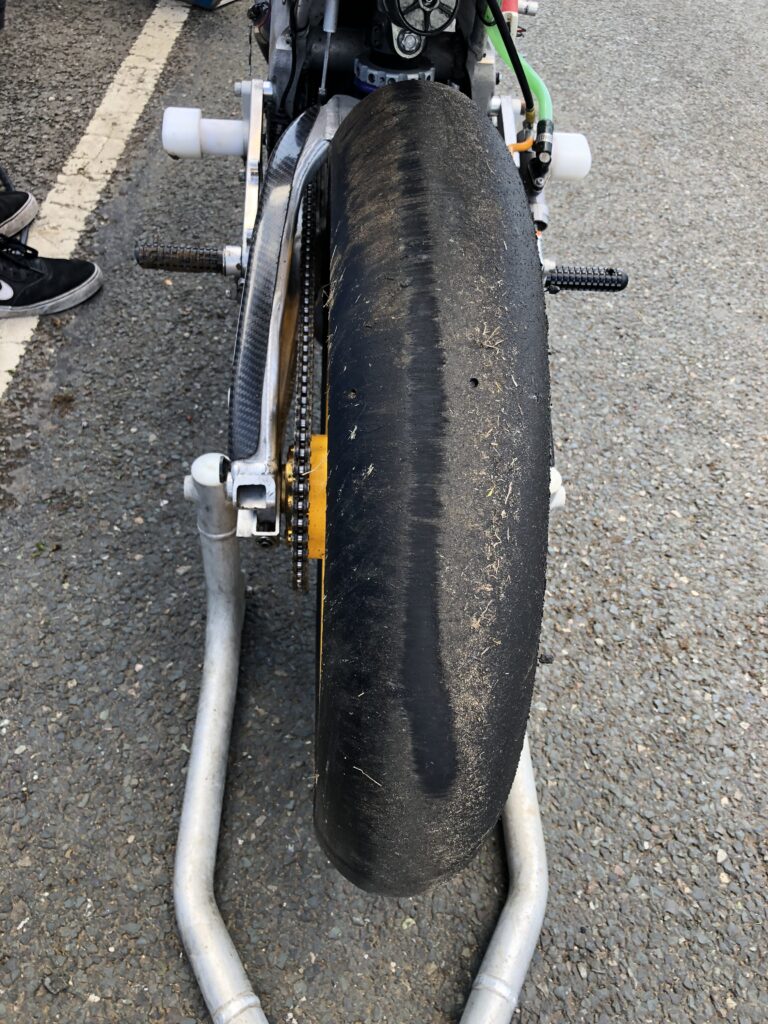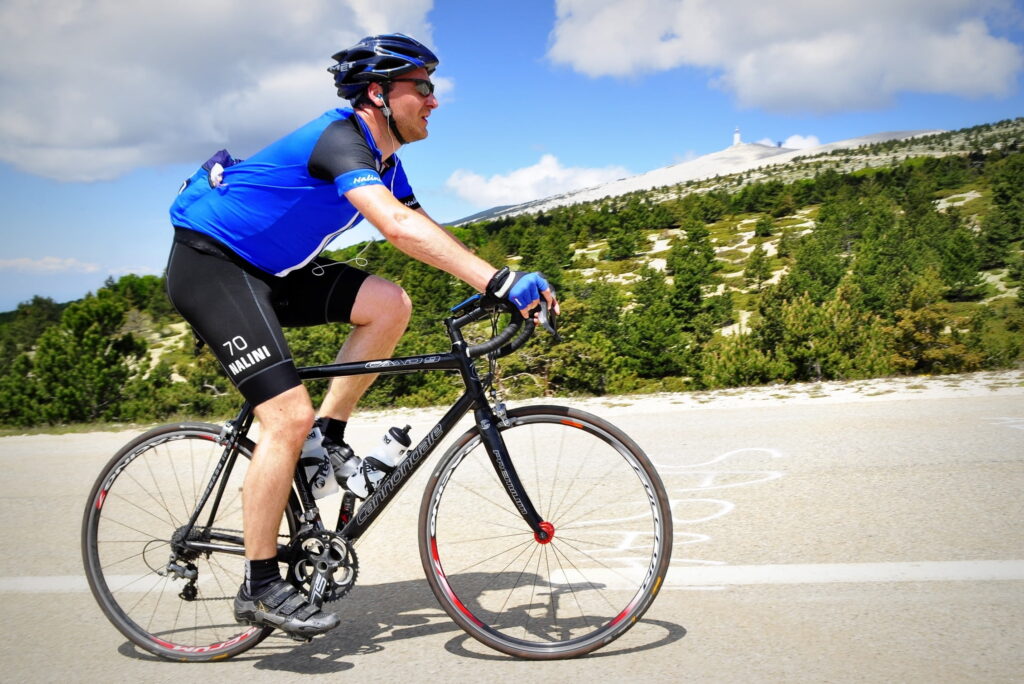As a motorcycle and cycling coach I want all my athletes to succeed but sometimes it is more important to measure performance and not results. In fact, even when you are winning lots of races focussing on personal performance is more beneficial than worrying about the outcome. I’ll explain why using the lens of some of my experiences this past week.

To maintain your self-efficacy it is important to think about your
overall performance and not dwell too much on mistakes.
Supporting my Athletes
Last week was very demanding for me as a motorcycling and cycling coach. My athletes faced significant challenges and I relied upon my extensive experience to guide them through.
The week started with a rider competing in a professional cycling race. They were coming back from significant illness and needed time to regain fitness. However, the requirements of the job meant they had to race. We hoped their condition would be a bit better than it was but, as it happened, they struggled. Unfortunately, others didn’t see it that way and expected more.
I spent a lot of time supporting the rider giving positive encouragement but also trying to be honest. I think it is bad to lie to a rider – you can’t just tell them what they want to hear. They may momentarily be reassured but when they discover that you’ve been dishonest it’ll be hard to regain trust. I therefore tried to focus on building their confidence separate from what may or may not have happened on the road.
In this situation it is important to have realistic plan for each day’s racing and to have attainable goals. Those goals could be very small, but they should be within easy grasp. Getting the basics right, even at professional level, is crucial and can be the difference between finishing, or not. Try to focus on process goals that will help you do your work well and keep your mind away from nonconstructive negative talk. These process goals are crucial for securing a good performance regardless of the result.
Things outside of your control
How ever much preparation you do there will always be things outside of your control. It’s become a popular mantra: ‘focus only on the things over which you have control’. But this is much easier said than done and motorcycle coaching is an area where I’ve learnt the importance of this approach.
In motorcycle racing there is so much that can go wrong and the vast majority of it is outside of the rider’s control. But like any athlete, when a rider makes a mistake they so easily ignore all the good aspects of the performance and focus on that single error. It’s easy to understand why as the bikes are ridden on the very limit of their grip. A minute misjudgement can end in disaster and a DNF.
Honesty can facilitate learning
Again, honesty is important, particularly when it comes to mistakes. Your ability to improve as a rider is directly related to your ability to learn so analysing errors is a crucial part of that process. As we see in all walks of life ignoring mistakes is foolhardy.
The tricky part of the learning process is accepting your mistake but at the same time not letting it affect your self-efficacy. Sports psychologists define self-efficacy as the athlete’s belief in their own ability to perform necessary tasks required to achieve their goals. That sounds like a bit of jargon. Essentially it is your situational self-confidence: do you feel you can do all the things necessary to ride a motorbike fast enough to win a race?
cool evaluation of performance
Following a mistake I think it is important to give the rider space to be angry or frustrated. They need time to work through their emotions and hopefully come to terms with what happened. When they can think more calmly (psychologists call this cold cognition) this the time to analyse what has happened and what could be done differently next time.
It is also important at this stage to rationally examine the race. Was it all bad? In even the worst cases there is usually something positive that can be found. It is these positives that are important for building self-efficacy and resilience. Sport can be cruel and the result often doesn’t always reflect the performance.
What can you do about somebody crashing into you, or an engine blowing? Nothing. Even an unforced error doesn’t mean that you are useless. You could have ridden some of the best laps of your career before making a tiny mistake that ended in disaster.
If this ever happens to you, write a list of all those things you did well and then pick just two or three things to work on for next time. You don’t need any more than that as it will be too much to focus on and a long list could appear quite demoralising.
Getting lucky
On the other side of the coin athletes can get lucky when they should have done better. Cyclocross often doesn’t forgive mistakes and plenty happen! I tell my riders to expect problems to be the norm and if they have a clean race to treat that as a bonus.
The one thing that can’t be forgiven is making the same error lap after lap. I see this a lot and I focus much of my coaching effort on trying to undo this counter-productive approach. As I stated earlier, learning is a powerful tool and you have to develop strategies to learn whilst riding the race. Post-race analysis is still incredibly useful but when you have to repeat many laps of a circuit valuable time can be saved from making adjustments to your skills during the event.
As it happens, I saw riders on Sunday (not necessarily coached by me) get punished for repeated mistakes and others get away with howlers before understanding they needed to change strategy. It’s better to act late than never, but more preferrable to quickly take control than to rely upon good fortune.
Performance and not results
As you can see results don’t necessarily reflect the performance so it is key to make the right attributions. Attributions are the reasons people assign to their successes or failures. A great deal of research has been published on this, so I won’t go into it too much for now. Suffice to say it is important to evaluate your performance with respect to things you have under your control i.e. not luck.
I always tell my athletes to focus on doing the things necessary to be the best possible athlete they can be. A desire to win is great and that’s why people choose to compete. But merely making winning your goal won’t give you the tools to get there. Instead, you should write a list of all the skills and qualities you need to be a winner and then systematically work on these. Do this and the results will start to fall into place, almost be default.
Furthermore, if you approach your sport with professionalism, courage, a good training ethic and a desire to learn then you will always be satisfied that you did your best, even if the result doesn’t always reflect this. In my experience it is the cyclists and motorcyclists with these qualities who go on to have long and rewarding careers.


